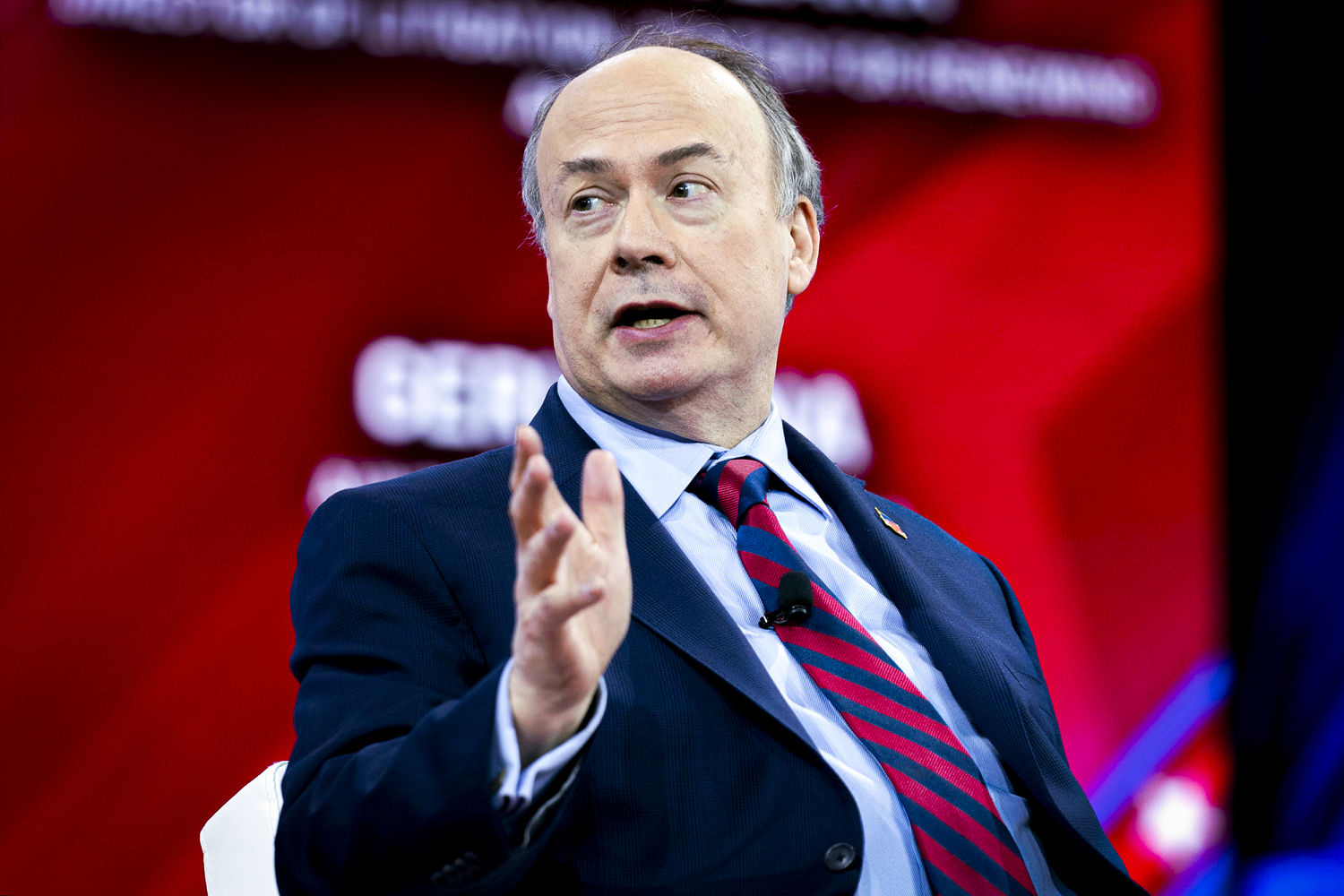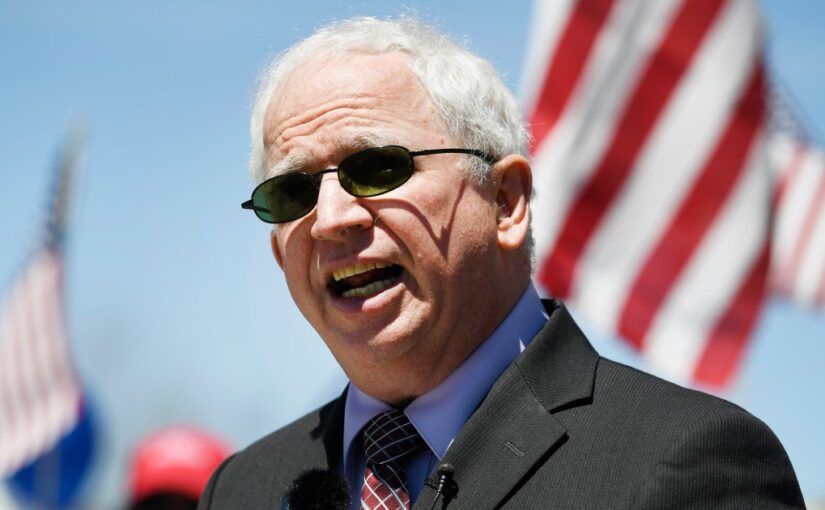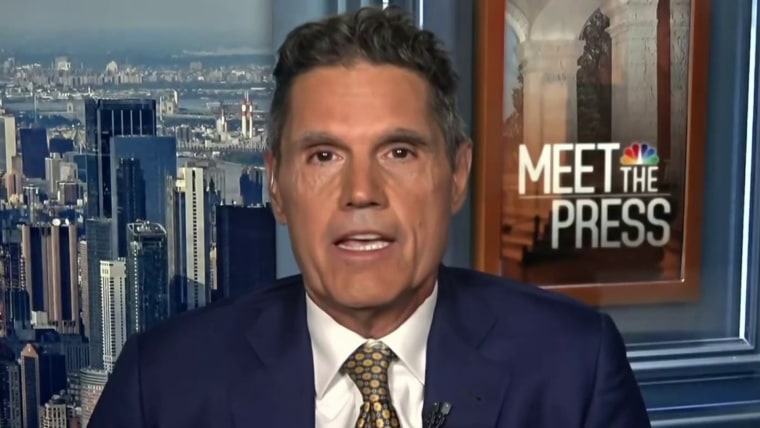
WASHINGTON — An environmental lawyer whom Donald Trump wanted to take over the Justice Department in the days before the Jan. 6 attack on the U.S. Capitol repeatedly asserted his Fifth Amendment right against self-incrimination during a disbarment hearing on Wednesday.
Jeffrey Clark, a former Justice Department civil lawyer with no criminal law experience, had wanted to investigate a conspiracy theory that the 2020 election was stolen, including via smart thermostats. Just hours before the Jan. 6 attack, Trump nearly made Clark the acting attorney general of the United States but backed off when Justice Department leadership threatened to resign en mass.
Federal authorities searched Clark’s home in June 2022, and he now faces criminal charges in Georgia in the state racketeering case against Trump and others. Clark surrendered to authorities in August in that case and entered a not-guilty plea. He is also unindicted co-conspirator no. 4 in the federal election interference case brought by special counsel Jack Smith against Trump.
Clark briefly testified during a disciplinary hearing unfolding this week before the Ad Hoc Hearing Committee for the D.C. Board on Professional Responsibility, which is deciding whether Clark should lose his bar license for his involvement in attempts to overturn Trump’s 2020 election loss. The case was initiated in 2022 by the D.C. Bar’s Office of Disciplinary Counsel and has been held up in litigation for nearly two years.
Before Clark’s testimony, his lawyer talked about wanting to prevent Clark from having to repeatedly assert his Fifth Amendment right and “avoid us being on MSNBC for no good reason.”
Once his testimony got underway, Clark repeatedly asserted his Fifth Amendment right, as well as law enforcement privilege, deliberative process and attorney-client privilege.
Patricia Matthews, a member of the three-person panel hearing the case, asked Clark who his client was in connection with his invocation of attorney-client privilege: “For whom were you the attorney?” she asked.
“For President Trump, the head of the executive branch, the sole head, the unitary head of article two, the executive branch of the United States government,” Clark said. (Typically, Justice Department employees say that their client is the United States of America, not one particular president.)
Clark’s lawyer intervened when Matthews asked a follow-up question.
Earlier in the morning, the panel heard testimony from former acting Attorney General Jeff Rosen whom Trump had proposed replacing with Clark. Rosen testified that he remembered telling Donald Trump he could have the DOJ leadership he wanted, “but it’s not going to change the facts” about the election.
Rosen testified that Clark was seeking to investigate issues that were “nowhere in his lane” and that, looking back, “Mr. Clark wasn’t very forthcoming” during the period leading up to the Jan. 6 attack. Clark, Rosen testified, “had read things on the internet.” Rosen said he thought for a time that giving Clark some info about DOJ’s efforts to investigate some of the conspiracy theories Clark believed in might help Clark with “coming off the ledge, if you will.”
Clark and then No. 2 DOJ official Richard Donoghue that Clark was “way out of bounds, way out of his lane.” Donoghue testified to the Jan. 6 Committee that he highlighted Clark’s lack of criminal or election experience during an hours-long standoff in the Oval Office on Jan. 3, 2021, telling Clark: “You’re an environmental lawyer. How about you go back to your office, and we’ll call you when there’s an oil spill.”
Rosen testified about the same Jan. 3 meeting during Wednesday’s hearing, saying that he and other lawyers in the room, “everybody, had indicated they would, in some manner, feel obliged to resign” if Trump named Clark as acting attorney general.
The threat of mass resignations at the Justice Department ultimately helped convince Trump to step back from his plan to appoint Clark, several lawyers in the room have testified.
Clark’s defense team on Wednesday called Suzi Voyles, a Republican politician and Trump delegate whose claims of voter fraud in Georgia in 2020 were investigated and dismissed by state authorities. Voyles testified that she still suspected voter fraud in Georgia and spoke about how she believed that voting machines work, adding, “I’m not very technical.”
A disciplinary board for the D.C. Bar Association previously recommended that Trump attorney Rudy Giuliani lose his law license, writing that Giuliani’s “effort to undermine the integrity of the 2020 presidential election has helped destabilize our democracy” and that his “malicious and meritless claims have done lasting damage.”

